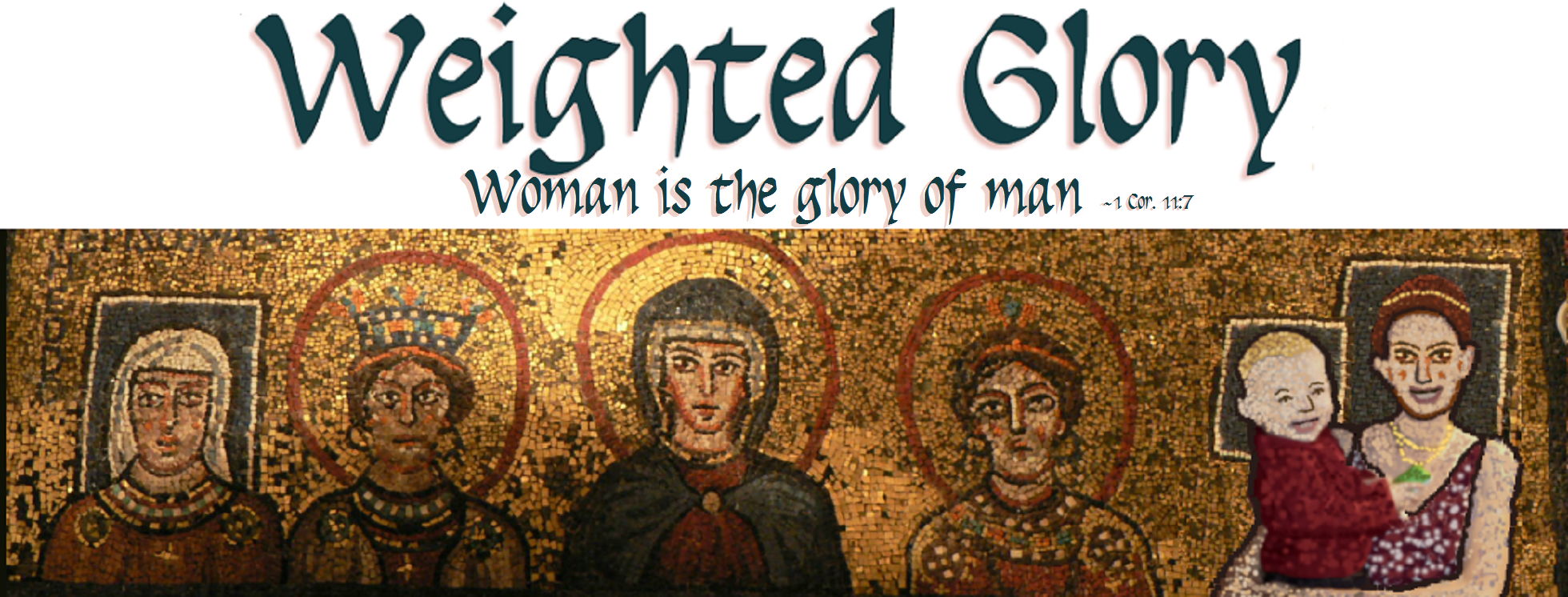 by Bridget Jack Jeffries, PhD Student (Church History), Trinity Evangelical Divinity School
by Bridget Jack Jeffries, PhD Student (Church History), Trinity Evangelical Divinity School
[UPDATE 12-17-2023: I no longer believe Origen wrote these comments below on Junia. They are instead the work of Rufinus of Aquileia (AD 340–410), and I will explain why this is most likely the case in a forthcoming article. In the meantime, I am leaving the rest of the post up unaltered from its original form.]
Origen (AD 184/185 – 253/254) serves as one of six patristic witnesses [1] who commented on the apostle Junia and confirmed two of the three points of contention about her, namely, her gender and her apostolic status. While many Junia commentators mention this about Origen in passing, few bother to actually quote his comments on her in full, so I am presenting them here as a resource. Origen’s comments prove interesting because, not only does he confirm that Junia was an apostle in some sense, he says she was possibly a member of the seventy-two who were commissioned by Christ in Luke 10:1ff, a group that is predominantly thought of as exclusively male and viewed as an ordained, authoritative and/or venerated body in some church traditions. Later documents purporting to list the seventy disciples commissioned by Christ during his ministry would sometimes include women like Junia and Priscilla, but only after first turning them into men (!) [2] Origen, it would seem, had less reservations about a female member of the seventy.
If you have not studied Origen, know that while he wrote in Greek, the Greek text of his work survives only in fragments and quotations from other authors. Rather, most of his work has been preserved via a Latin translation by Rufinus of Aquileia (AD 345 – 410). This gives us two patristic witnesses for the price of one, as Rufinus’ Latin translation clears up some of the alleged ambiguity of the Greek text, assuming Origen quoted Romans 16 accurately.
The translations below are my own, working from Caroline P. Hammond Bammel’s critical edition of the Latin text. [3]
Origen, Commentary on Romans 10.21.1-27
“Greet Andronicus and Junia (Andronicum et Iuniam), my relatives and fellow captives (concaptivos), who are excellent among the apostles (nobiles in apostolis) and were in Christ before me.” It may indeed be that they were relatives of Paul according to the flesh and that they believed in Christ before him and were regarded as excellent among the apostles of Christ (nobiles habiti sint in apostolis Christi). From this it may be understood that they were perhaps of the seventy-two (septuaginta duobus) who were themselves also called apostles (ipsi apostoli nominati sunt), and that it is on that account that he says they are excellent among the apostles (ideo nobiles eos in apostolis dicat), even among those who were apostles before him (in his apostolis qui ante eum fuerunt).
However, it troubles me when he says, “my fellow captives” (concaptivos meos). For, in fact, which imprisonment of Paul was there in which he attests that Andronicus and Junia (Andronicum et Iuniam) are also fellow prisoners (concaptivos)? Unless perhaps, by a more profound mystery, we should reflect on the captivity which Christ came to end, of which it is written was for coming and giving release to the captives and sight to the blind. They would seem to be in that captivity by one and the same estimation as even Paul was. Truly, if by way of example we were to say: when the nation of Israel was captive among the Assyrians or the Babylonians, all, indeed, seemed to be captives, but there was one reason for the captivity of everybody else and another for Daniel and Hananiah and also Azariah and Mishael. The former were in fact captives because of their sins, while in truth the others were captives themselves for the comfort of the captives. And on that account, if Daniel were to call someone from the common people, “My fellow captive” (concaptivus meus), it would not seem to be said as suitably as if he were to say to Hananiah and Azariah and Mishael, “My fellow captives” (concaptivi mei). With the latter, there is one reason for captivity which is very different from the reason for the rest of the nation. And so in this way Paul, perceiving something similar between himself and Andronicus and Junia (Andronico ac Iunia) according to the reasoning of a more concealed mystery, called them his fellow captives (concaptivos) in this world and excellent among the apostles (nobiles in apostolis).
- Andronicum et Iuniam — Junia is accusative feminine singular here.
- nobiles in apostolis — It is possible for the Latin in + ablative to mean “in the eyes of;” for example, De Bello Civili 1.61, “Caesaris in barbaris erat nomen obscurius / The name of Caesar was more obscure among the savages [but Caesar was not himself a savage].” However, Origen’s comments demonstrate that he interpreted the phrase inclusively, making it clear that Rufinus deemed in + ablative to be the most accurate inclusive translation of the Greek ἐν + dative, as opposed to some other construction, such as a genitive. This will be discussed in greater length in my article on Rufinus and Jerome.
- septuaginta duobus — Origen believed that there were seventy-two of these apostolic disciples rather than seventy.
- Andronico ac Iunia — Junia is ablative feminine singular here.
Origen, Commentary on Romans 10.26.1-7
Greet Herodion, my relative. And as with Andronicus and Junia (Andronicus et Iunia), this man is called a relative of Paul, but unlike them, he is named neither a fellow captive (concaptivus) nor excellent among the apostles (nobilis in apostolis) among those who were in Christ before Paul. From this it should be discerned that there is a considerable difference even among those whom Paul calls his relatives, in my opinion, according to the hypothesis that we undertook to explain above.
- Andronicus et Iunia — Here, in this fourth mention of Junia, the nominative feminine singular occurs. This makes it absolutely clear that Origen was speaking of a woman since, if he had written Ἰουνιας, Rufinus likely would have translated it “Junias” or “Junius.” There are two late variants with the masculine “Junias” here, one from the 11th century and one from the 15th century, but four manuscripts dating to the 8th and 9th centuries all witness the feminine “Junia” or “Julia.” [4]
Origen, Commentary on Romans 10.39.41-47
Otherwise, if anyone disagrees with interpreting these things as a figure of speech, let him set forth to us how Timothy and Jason and Sosipater, who were citizens not just of greatly different cities but even provinces, were somehow relatives and of the same blood as Paul, and not just them but even Andronicus and Junia (Andronicus et Iunia) and Herodion, all of whom he names his relatives and fellow captives (concaptivos).
- Andronicus et Iunia — Nominative feminine again, a final testament to the fact that it is a woman in view. Again, there are two late 12th century variant manuscripts which have “Junias,” but an 8th century, a 9th century, and two other 12th century manuscripts all have the feminine “Junia” or “Julia.” [5] Rabanus Maurus aka Hraban of Fulda (c. 776-856) quoted Origen’s commentary here and had Junia as feminine. [6]
- Note that Origen has made a mistake here as Paul does not call Herodion his “fellow captive.”
Conclusion: Origen said that Junia was a woman, an apostle in some sense for whom a “considerable difference” existed between herself and other believers, and a possible member of the seventy-two (Luke 10:1ff). As the earliest commentator on Junia, Origen’s witness is an important one, every bit as important as the oft-cited passage from John Chrysostom. Christians who advocate for this forgotten female apostle would do well to refer to Origen liberally.
—
The Junia Series – Introduction
II. The Patristic Commentators
- Origen on the Apostle Junia
- Did Origen say Junia Was a Man?
- John Chrysostom on the Apostle Junia
- Rufinus and Jerome on the Apostle Junia
- Ambrosiaster and Theodoret on the Apostle Junia
III. Later Commentators
- Index Discipulorum: A Troubled Witness
IV. Junia: An Apostle Herself, or Just Well-Regarded By Them?
- An Overview of the Burer-Wallace Contention
- Junia and the Island of Tyre
More will be added to the index as the series develops . . .
—
Notes:
[1] The six patristic authors who commented on Junia or translated Romans 16:7 into Latin are {1} Origen (184/185 – 253/254) via {2} Rufinus (345 – 410), {3} John Chrysostom (c. 349 – 407), {4} Ambrosiaster (ca. AD 375), {5} Jerome (c. 345-419), and {6} Theodoret of Cyrrhus (c. 393 – 458/466). All of these authors said Junia was a woman and arguably all of them said that she herself was an apostle; the “esteemed by the apostles” interpretation now favored by complementarians is absent from antiquity. Note also that I exclude from this list the 6th century Index Discipulorum, often falsely attributed to the 4th century church father Epiphanius of Salamis.
[2] See my post on the Index Discipulorum later in this series.
[3] Origenes, Der Römerbriefkommentar des Origenes: Buch 7-10, edited by Caroline P. Hammond Bammel (Freiburg im Breisgau: Herder, 1998), 836-39, 853. For an explanation of the manuscript evidence, see Buch 1-3 (1990), 5-32.
[4] Ibid., 838.
[5] Ibid., 853.
[6] Patrologia Latina 111.1607-8.




Thanks for making this information easily accessible, Bridget.
My pleasure, Marg. 🙂
Nice work again. In my Catholic Biblical Quarterly article (April 2022) I argue that sexist Greek speakers often took Prisca, Junia, and Julia to be men. Latin speakers were familiar with these Latin feminine names so they knew that they were women.
So, Rufinus took Junia to be a woman (though it is interesting that the later manuscripts of Rufinus change Junia into a probable man). But did Origen? If Origen mistakenly took Junia to be a man, Rufinus could have corrected Origen’s mistake, couldn’t he?
Richard! I’m glad you commented. I’m prepping something to present on the Index Discipulorum and Origen’s comments on Junia at ETS and it will mention something the late Suzanne McCarthy said. I know you used to read her blog, and I thought maybe you’d be willing to take a look at my paper when it’s done?
Your paper was phenomenal! The tension in P46 where Rom. 16:7 is concerned is interesting (both changing the text to say only Andronicus was in Christ before Paul—indicating that the author had some sense Junia was a woman—but also the textual change in 16:15 attempting to cast doubt on the earlier 16:7). I’ll have to think more about that.
It’s also very interesting that Jerome lists “Priscus” in his Book of Hebrew names; he was certainly familiar with Priscilla (“Aquila and Priscilla educated Apollo, an apostolic man learned in the law, in the way of the Lord. If to be taught by a woman was not shameful to an apostle, why should it be to me afterwards to teach men and women?”, Ep. 65.1; he does reverse the most common order of their names there though). Now I’m wondering how often there was a tendency to make Prisca/Priscus and Priscilla in to separate people.
The one thing I don’t think you talk about in your paper is, Junia was a well-known name apart from examples of women actually having the name because of Marcus Junius Brutus’ role in the assassination of Caesar. Even if fewer actual women had the name “Junia,” people would have had some sense of how the Roman gens system worked and that Junia was the likely feminine of Junius.
As far as Origen goes, I do plan to argue that he saw a woman in the text. I’ll say why in my paper. Let me know if you’d be interested in reading it.
Hi again, Bridget. I have just been rereading Gamble (The Textual History of the Letter to the Romans). He questions whether Origen commented on Rom 16 (see pages 125-6).
Your translation “even among those who were apostles before him” seems to suggest that the author of this part of the commentary was using the “western” text of Rom 16:7, which says that the apostles (and not A and J, or not just A and J) were in Christ before Paul. If this is correct, then the comments probably came from Rufinus, rather than Origen. Rufinus would certainly know that Πρισκαν and Ιουνιαν were female names. I’m not sure about Origen.
Do you think Origen commented on the people in Rom 16? I have not studies the question.
Thanks Richard, I will look up Gamble this week! I haven’t studied this question yet, either; I’m wondering if Hammond Bammel addresses it in her text-critical edition of Origen’s Commentary on Romans. I’ll check it out!
Hi Bridget Jack, thanks for this website it is incredibly helpful. Is there a way to get a copy of your paper? I’d love to dig into this further, and am having trouble finding good/ comprehensive answers to Yue L NG paper. This is just a personal matter for me in figuring out how best to communicate this in my highly patriarchal circles.
Thanks for considering!
Hannah, thanks for your inquiry.
Here are some points on Ng’s first article on Junia:
(1) Ng depends on “Origen” and “Epiphanius” as witnesses to a male Junia. Both of these references have significant authorship issues that Ng appears to be aware of, yet she does not address them. This is at least somewhat understandable where Origen is concerned (most secondary literature on Junia has ignored Fábrega’s 1984 objections to Origenian authorship of chapter 16 of the Origen-Rufinus commentary), but hard to justify in the case of “Epiphanius”; the source originally cited by Grudem and Piper in 1991 always said the work was spurious and pseudo-Epiphanian. (IIRC, Ng doesn’t actually cite a source for her use of “Epiphanius”, so it’s unclear to me what source she could have been using that would not have called the text Ps-Epiphanian.) Which is all to say: Epiphanius and Origen left no extant comments on Junia. Some anonymous late patristic and medieval lists of disciples made Junia and a few other women (Priscilla, Euodia) into men to fill out their lists of 70, and this hardly shows that these women may have really been men. Rufinus, a Latin author, almost certainly took the name as feminine when he augmented Origen’s commentary on Romans to give it a section on the 16th chapter, and a few later scribes may have tried to make Rufinus’ Junia masculine in their copies. Every patristic author who commented on the passage either explicitly said Junia was a woman or used a form of the name that was only known to be feminine (Iunia/m or Iulia/m in Latin, Ιουνια\ν in Greek).
(2) Ng depends on the Wolters thesis that a Jewish man with the name יחוּני (Yĕḥunnī) might have had his name transliterated into Greek as Ιουνια\ς. There are three problems with this thesis: (a) יחוני appears to be a theophoric variant of the much-more-common חוֹני (Ḥoni), so its transliteration probably would have been Ιονια\ς, not Ιουνια\ς; (b) a Jewish man probably would not have chosen a transliteration of his name that made it indistinguishable from a common pagan woman’s name, especially in the very city where said woman’s name is most common. Ng dismisses this objection as an “unproven assumption”, but I assemble a dataset showing evidence for this in my dissertation; (c) we have a good body of data on Palestinian Jewish men’s names, and יחוני is an exceptionally rare name, with only 2 confirmed attestations out of thousands of Jewish male names in the extant record, or 0.08% of the male data set. That does not make an appearance in Romans impossible, but it does raise the improbability of encountering the name here. (Also, a lot of users of Wolters’ work seem to ignore that he admits the name Ιουνια could still be a feminine Hebrew יחוניה, so even if the name is a Hebrew transliteration, it could still very much be a woman’s name.)
(3) Ng refers to Tal Ilan’s Lexicon of Jewish Names in Late Antiquity, which gives no other examples of first-century Jewish women having the name “Junia”. There are three entries in Ilan’s database for Junia: Rom 16:7, a 3rd-4th century Jewish woman with the name, and an entry that is probably not Jewish (Ilan includes all “maybes” in her database). Ng uses this to suggest that first-century Jewish women were not in the habit of going by “Junia” and therefore the masculine “יחוני”, with 2 or 3 attestations, is a stronger candidate for Rom 16:7. I imagine this paucity of Jewish women named “Junia” sounds very damning to someone with zero familiarity with Ilan’s databases. In context, this is some rather astonishing cherrypicking of Ilan’s data. Solo attestations of Jewish names are found on nearly every page of Ilan’s databases, especially in the sections on women’s names (where data is incredibly sparse; men make up 79%-93% of the names in these books). Approximately 69% of Ilan’s entries for Jewish women’s Latin names are solo attestations of names, and Junia isn’t even part of that 69%, because it has a second entry in the 3rd-4th century (!). There are quite a few other Jews in the New Testament who are the only known Jewish users of their Greco-Roman names in antiquity: Prisca / Priscilla, Drusilla, Parmenas, Silvanus, Sosthenes, etc. (Note: two are even women, and one is right there in Rom 16 with Junia). That there are no other known first-century examples of Jewish women having this name does not remotely diminish the probability that this is a Jewish woman using the name “Junia” in a city where that name was incredibly common, nor does it make the “יחוני” theory more probable. It’s a completely mundane data point. (Ng points to the number of Jewish women named “Julia” to suggest we ought to find plenty of Jewish women named Junia if they were using the name, but this is a distorted comparison. No pagan names were as commonly used by Jews as gens Iulia, except maybe gens Aurelia, but that has to do with the Caesars.)
(4) Ng suggests that Paul’s talk of apostles taking along believing wives in 1 Cor 9:5 shows that he only conceptualized apostles as men, apparently because Paul fails to mention a female apostle’s parallel right to take along a believing husband. This is unconvincing because Paul is speaking of his own apostolic rights and presumably Paul has no desire to take along a believing husband. Mention of a female apostle’s right to travel with a believing husband would have been bizarre in the context of the argument Paul is making.
I actually don’t have a lot of disagreement with the last section of Ng’s first article on Junia; I agree that Junia being an apostle does not automatically necessitate women’s ordination today. I’m just not sure complementarians actually believe this, given the flawed data sets they’ve been relying on to argue Junia is a non-apostle and/or Junia is male.
I’m not particularly invested in the theory that Herod’s Joanna was Junia, so I don’t believe Ng’s second Junia article warrants much of a response. However, it’s well-established in scholarly literature on Jewish names in antiquity that Jews sometimes used pagan names that were phonetically similar to semitic names (Paul for Saul, Rufus for Reuben, Astrid for Esther, Jason or Justus for Joshua or Joseph, Silvanus for Silas, etc.), and Junia is definitely close enough to Joanna (which was a relatively common Hebrew woman’s name). It’s also clear that Jewish contemporaries of Junia (Paul, Prisca, Aquila, Silvanus, Justus, Rufus) were using Latin names unmolested. The rest of the article strikes me as an exercise in attaching peril to Junia’s use of a Roman name that other New Testament Jews with Roman names are excused from, because reasons. Either our Junia had citizenship, or the law forbidding non-citizens from use of Latin names was not well enforced, or Junia knew and accepted the risks. Which option applies is ultimately unknowable, but her association with Paul increases the likelihood that she had citizenship.
I hope this was helpful. I’ll e-mail you about the paper.
Hi Bridget. I am no Origen specialist, but I would be very happy to read your draft.
What do you make of Bauckham’s Joanna-Junia equation? I supported it here:
https://paulandco-workers.blogspot.com/2020/04/chuza-and-joanna-as-andronicus-and.html
Also, I engaged with Wolters here:
https://paulandco-workers.blogspot.com/2011/02/al-wolters-responds-on-junia.html
Question – Do you have a quote re: Mary in Romans 16:6, in which someone (Origen?) says that we are not ashamed but proud to have such women among us?
If Junia was an Apostle (as in capital ‘A’ the office of Apostle, like the 12 and Paul), or even a small ‘a’ apostle messenger or sent out one possibly including meaning one of the 70, I find it hard to believe that in her unique status (in particular the former case) that there is not another mention of her in the Bible or in history. We have a few comments about the Romans 16 text some 300 years later. Nothing of her further ministry or travels or life or death. Based on this, and the possibilities that the text means that she was a choice saint, an apostle in the general sense. Or more likely to me that she was noteworthy among the Apostles, meaning all the Apostles knew her and commended her highly among all disciples including men.
Hi John S, where in the first ~300 years of the church are you reading about most of the Twelve? Very little is said about any of what you call the “big A” apostles outside of Peter, Paul, and John. So it isn’t at all strange that no one spoke of Junia until commentaries on Romans started coming out more regularly. I’m not at all convinced that there were “big A” apostles versus “little A” apostles; most patristic commentators seemed to regard anyone called an apostolos as an apostle.
Very few people in church history said that the passage meant “well-known to the apostles” until Burer and Wallace’s 2001 paper in New Testament Studies, and there were a lot of issues with that paper (and its 2015 follow-up). Most of those who took this meaning seemed to have been reading the passage in Latin translation (nobiles en apostolis), not the original Greek. See also the refutations of Burer and Wallace in Belleville, Bauckham, Epp, and Lin.
I cover all of this in my upcoming dissertation.